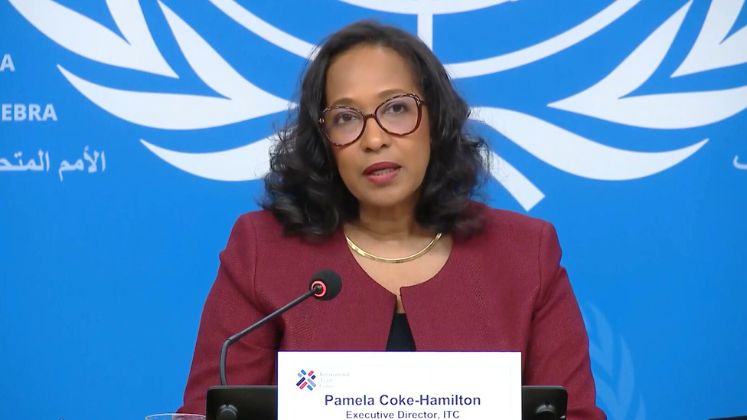
A senior United Nations trade official has warned that the new US tariff regime may reduce global commerce by 3 per cent and drastically shift export flows from established markets like the US and China to rising economies like India, Canada, and Brazil.
Pamela Coke-Hamilton, Executive Director of the International Trade Centre, has issued a warning that long-term disruptions in global trade and economic integration are likely to result from US President Donald Trump’s aggressive tariff hikes and China’s retaliation.
According to Coke-Hamilton, substantial long-term changes in trade patterns and economic integration could result in a 3 per cent decline in global commerce. Mexico’s heavily affected exports are moving away from markets like the US, China, Europe, and even other Latin American nations, with only slight increases in Canada, Brazil, and, to a lesser degree, India.
Last week, the White House imposed high import duties, including a 145 per cent tax on Chinese goods. Most nations have been given a 90-day reprieve from “reciprocal tariffs,” but China has not. In response, it has imposed a 125 per cent tariff on US imports.
Supply networks are being widely reoriented as a result of the current trade war. With significant gains, Vietnamese exports are shifting from the US, Mexico, and China to the EU, Korea, and the Middle East and North Africa (MENA) regions.
According to Coke-Hamilton, the textile industry is one of the most important sectors for employment and economic activity in developing nations.
If US actions go forward, Bangladesh, the second-largest garment exporter in the world, would face a 37 per cent reciprocal duty, which could reduce its yearly US exports by US $ 3.3 billion by 2029.
She went on to say that poor countries need to put diversification, value addition, and regional integration first in order to survive shocks like pandemics, trade policy changes, and climate calamities.






